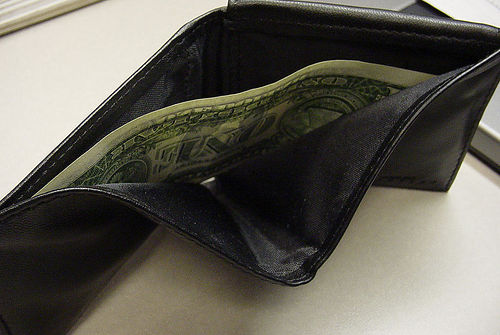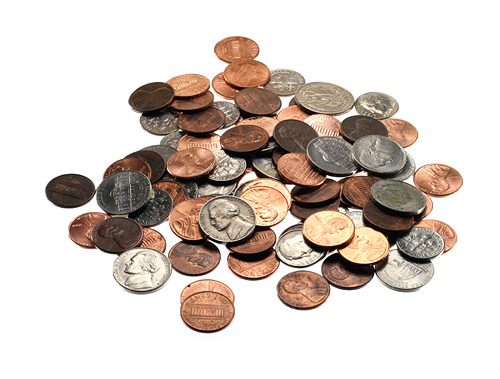Yesterday Kacie at Sense to Save wrote about what she would do in a financial worse case scenario like a job loss or sudden medical expenses. I’ve actually been thinking about this a lot lately. Unfortunately, an acquaintance’s husband recently lost his job, and it made me wonder if we’d be prepared for a similar situation.
Our emergency fund is nowhere near complete. We actually only have enough to cover us for about a month and a half. Yikes. But we’ve only been working on it for about four months, and we plan to make it a top priority in the coming year.
Obviously, just as Kacie suggested in her post, the first thing to go would be discretionary expenses (cable, entertainment, cell phone extras, etc.) Our budget is pretty bare bones already, but cutting discretionary spending would probably free up $250 or so max. That’s easy enough.
But what if that wasn’t enough? What then? I think it’s important not just to have a plan for financial emergency, but also a plan for financial catastrophe.
For us, it would mean putting my student loans back into forbearance (a lender-approved pause in repayment that wouldn’t negatively affect my credit score, but still leads to interest accrual). That would free up another $200.
Next we would consider downsizing to a smaller apartment. We currently live in a 2-bedroom because we like the extra space (a 1-bedroom can get a little cramped with two people and a dog). We considered downsizing last summer, but then our landlord offered to renegotiate our lease and lower our rent. We decided it wasn’t worth it after we crunched the numbers (including a $300 loss for nonrefundable security deposits) and considered the hassle of moving and living in a smaller apartment.
In an emergency we might try to get out of our lease or find a subletter. Moving to a smaller apartment could save us another $200 a month.
Until we have a 6-month emergency fund in place I consider it a priority, but if we had to choose between saving and eating, I’d be willing to cut back temporarily.
With all of those expenses cut, we could reduce our spending by about $1000 a month. Wow, that would make a huge difference. Of course, it would be uncomfortable. But there’s no room in the budget for comfort in times of extreme hardship, is there?
Finally, in the event of an extreme emergency, Tony would drop out of grad school and find a full time job. He’s currently paid a stipend to teach, but it’s much less than he’d make in a full time job (if he could find one in this economy).
We might even consider packing up and moving back home where we have a support network. That would be an absolute last resort if we had no other options. Tony only has about 18 months left in his program, so I’m hoping nothing too extreme happens before he finishes. :)
How about you? What’s your plan for financial emergency?



